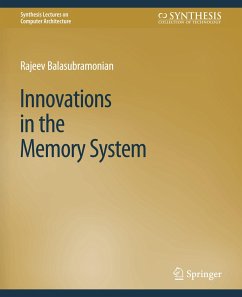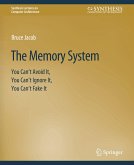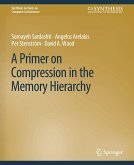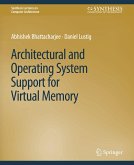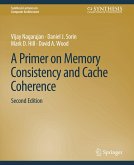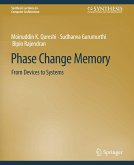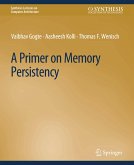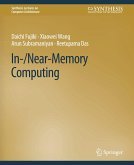The memory system has the potential to be a hub for future innovation. While conventional memory systems focused primarily on high density, other memory system metrics like energy, security, and reliability are grabbing modern research headlines. With processor performance stagnating, it is also time to consider new programming models that move some application computations into the memory system. This, in turn, will lead to feature-rich memory systems with new interfaces. The past decade has seen a number of memory system innovations that point to this future where the memory system will be much more than dense rows of unintelligent bits. This book takes a tour through recent and prominent research works, touching upon new DRAM chip designs and technologies, near data processing approaches, new memory channel architectures, techniques to tolerate the overheads of refresh and fault tolerance, security attacks and mitigations, and memory scheduling.
Bitte wählen Sie Ihr Anliegen aus.
Rechnungen
Retourenschein anfordern
Bestellstatus
Storno

